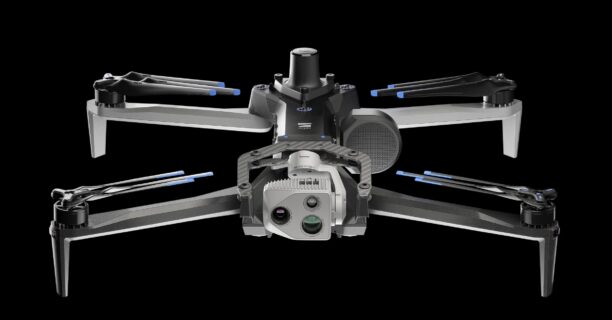Skydio Responds to Chinese Sanctions with Temporary Battery Rationing for Drone Customers

U.S. Manufacturer Plans to Bolster Supply Chain Amid Ongoing Industry Tensions
In response to recently announced Chinese sanctions against them, U.S.-based drone manufacturer Skydio informed its customers of a plan to ration battery supplies temporarily. The sanctions, which affect Skydio’s ability to source batteries, stem from the company’s sale of drones to Taiwan’s National Fire Agency. Skydio has affirmed its commitment to maintaining its current partnerships while adjusting supply chain operations to accommodate the disruption.
The issue highlights broader concerns over supply chain vulnerabilities in the drone industry. Lawmakers in the U.S. and allied countries have increasingly urged drone users to seek alternatives to Chinese-made equipment, citing supply chain issues and cyber security as critical factors. China’s dominance in drone production has led to concerns about reliance on foreign technology for essential operations. These restrictions against Skydio underscore the importance of supply chain resilience.
Battery Rationing in Response to Limited Supply
The sanctions have constrained Skydio’s access to batteries, While Skydio has invested in domestic production and sourcing outside of China, it acknowledged that “batteries are one of the few components we have not yet moved out of China.” Skydio CEO Adam Bry noted, “We have a substantial stock of batteries on hand, and our team was already developing alternative suppliers. But right now we don’t expect new sources to come online until the spring of next year.”
To continue supporting customer orders, Skydio announced that it will limit battery distribution to “one per drone” for the next several months. Recognizing the potential inconvenience, Skydio has committed to extending “the software license, warranty, and support term for all drones fulfilled with less than a full complement of batteries by the length of time it takes us to deliver all batteries in the kit.”
Supply Chain Vulnerabilities in Focus
The supply chain disruptions caused by the sanctions illustrate broader vulnerabilities in the drone industry, where sourcing key components has become a growing challenge for manufacturers trying to meet NDAA guidelines and avoid Chinese manufacturing. Bry commented that this recent development is “a clarifying moment for the drone industry,” adding, “the Chinese government will use supply chains as a weapon to advance their interests over ours.”
Historically, Chinese companies have played a dominant role in global drone manufacturing. However, recent calls from lawmakers and industry leaders have led to a shift toward alternative suppliers as a strategy to mitigate supply chain risks. Many U.S. companies and public agencies are now pursuing a diversified supplier network to support critical infrastructure and defense applications.
Collaborative Approach to Future Supply Chain Resilience
Skydio has indicated plans to share progress with other manufacturers as it works to develop battery sources outside China. Bry expressed the company’s view that cooperation among Western drone companies could support “the world [moving] on from this dangerous dependency.”
The company emphasized its commitment to minimizing the impact on its customers while working toward a more resilient supply chain. Skydio’s CEO encouraged customers with questions to contact their Skydio representatives, expressing appreciation for their support and partnership during this transition.
Read more:


